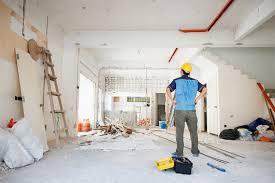Notifications

6 minutes, 40 seconds
-3 Views 0 Comments 0 Likes 0 Reviews

When commercial or office leases come to an end in Singapore, tenants are often required to return the property to its original condition. This process is called reinstatement, and it is a common clause in most tenancy agreements. A reinstatement contractor Singapore specializes in carrying out this work efficiently and in full compliance with local building regulations, ensuring a smooth handover back to the landlord.
Hiring a professional reinstatement contractor can save tenants time, reduce legal risks, and help them recover their security deposits. This article explores what reinstatement work entails, why it’s necessary, what to expect, and how to choose the right contractor for your project.
Reinstatement work refers to the process of restoring a leased space to its original state before the tenant made any alterations or fit-outs. During the lease term, tenants often make changes to suit their business needs—this can include adding partitions, electrical points, lighting, carpets, branding, or built-in furniture. At the end of the lease, the landlord typically expects the space to be returned to its base condition.
In Singapore, reinstatement works are common in:
Commercial offices
Retail shops
Industrial units
F&B outlets
This includes removing all custom installations such as partition walls, false ceilings, flooring, lighting, cabinets, and signage. Aircon units, plumbing fixtures, and data cabling installed by the tenant may also be dismantled.
Walls and ceilings are repainted to match the original finish. Any holes or damage caused by wall fixtures are patched and smoothed out.
Tenants are often required to remove additional electrical outlets, lighting features, or servers, and restore the original layout. Electrical panels must meet the building’s original specifications.
If the tenant replaced ceiling tiles or installed new flooring (such as vinyl, carpet, or raised flooring), these must be removed and replaced with the original type or as per the landlord's specifications.
A proper reinstatement contractor handles all debris and waste disposal according to Singapore’s NEA regulations, using approved dumping facilities.
Tenants must comply with guidelines from authorities such as BCA, HDB, and SCDF depending on the location and type of property. A licensed contractor understands these regulations and ensures full compliance.
Landlords often set strict deadlines for reinstatement. A reliable contractor works with an efficient schedule to meet timelines and avoid late penalties.
While it may seem cheaper to handle reinstatement piecemeal with different vendors, a professional contractor provides a comprehensive quote, reducing hidden or unexpected costs.
Experienced contractors manage the entire scope—from liaising with building management to coordinating workers and submitting the necessary permits and documents.
Companies relocating to new premises or closing down operations need full reinstatement. This includes dismantling meeting rooms, workstations, IT rooms, and restoring fire safety systems.
Shopping malls have strict reinstatement rules. Contractors help tenants remove all display units, signage, and lighting while ensuring mall management approval.
Factories and warehouses may require reinstatement of ventilation systems, machinery removal, and repainting of floor markings.
These projects often involve removal of kitchen exhausts, fire suppression systems, grease traps, and gas piping in compliance with SCDF regulations.
Experience: Look for contractors with a strong portfolio and positive client testimonials.
Licensing: Ensure the contractor is licensed and compliant with BCA and relevant authorities.
Scope of Work: Check if the contractor can handle all aspects—removal, disposal, electrical, painting, etc.
Transparent Pricing: A reliable contractor provides a clear, itemized quotation with no hidden fees.
Timeline: Choose someone who can commit to your project timeline and deliver on schedule.
Insurance: Public liability and worker insurance are essential for protection against on-site accidents.
Yes, if your lease agreement includes a reinstatement clause, you are legally required to restore the property to its original state before handing it back to the landlord.
Costs vary depending on the size and complexity of the unit. Small office spaces may cost from SGD 1,500–3,000, while larger commercial units can exceed SGD 10,000.
Small office reinstatement can take 3–5 days, while larger retail or industrial projects may take 1–3 weeks depending on scope and required approvals.
Technically yes, but without professional experience and tools, you may face compliance issues, delays, or landlord rejections. Hiring a certified contractor ensures smooth handover and adherence to regulations.

